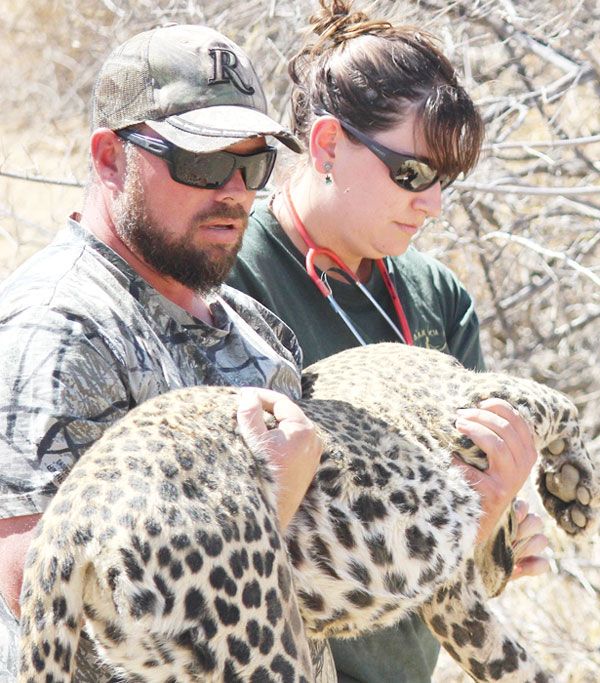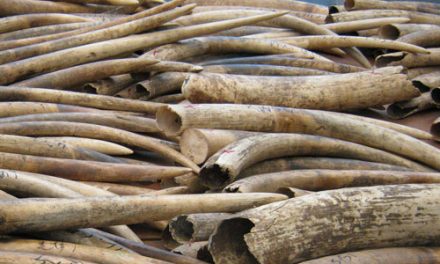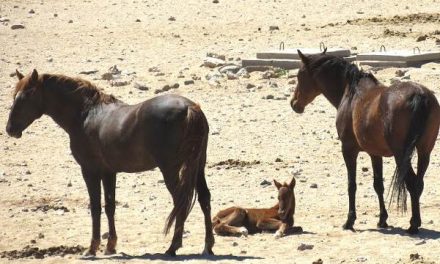
Anti-poaching efforts gain momentum
COVER, a not for profit organisation is lobbying for the legal trade of rhino horn and elephant ivory while also advocating to reduce demand for other wildlife products.
The founding member of COVER, which is an acronym for Conserving our Valuable Elephant and Rhino, Mr Jofie Lamprecht revealed the projects intentions to the media in Windhoek this week Wednesday.
The Closing The Gap project derived form “closing the time-distance gap” as commonly known in the tracking community aims to establish tactical tracking teams across Namibia, either as part of or attached to existing Anti-Poaching Units based in rural wildlife areas.
The project is in need of start up funding in order to develop the instructing team, procure the right equipment and register for regulatory reasons, Lamprecht explained.
By raising funds, the Closing The Gap Project aims to train and develop a five man tactical team that would be used both as an instructor team to train various rural teams and to act as a tactical response team to support the rural based teams and employers in the apprehension of poachers.
Huge stockpiles of ivory from elephants that have died of natural causes currently have no value while it is the intention of COVER to make the resources available without impacting the species, through the effort of a regulated trade system.
The last time permission was granted from government to sell stockpiles of Government Elephant ivory was in 2008.
Poachers and illegal traders have much stronger incentives and more money at their disposal to kill Rhino and Elephant than individual owners and custodians have to protect them COVER said in a statement.
By harvesting the Rhino horn which is the only illicitly traded wildlife product that can be sustainably harvested without killing the animal, COVER believes this will drastically increase the value of live rhino population in Namibia.
“We are affiliated with the next generation conservation trust and as such are aware of the fact that our goodwill and reputation is inextricably linked with the entities or associations with which we relate or associate ourselves with,” Lamprecht said at the first COVER media briefing session in Windhoek.
Lamprecht said that all funds raised by the next generation conservation trust and their partners will be accounted for procedurally and only used for the purpose of conservation.
COVER, through its Wildlife Angel initiative recently concluded a two week course which trained and equipped local troops on how to to effectively deter poachers.
Wildlife Angel aims to assist government, other non-governmental organisations, communities and private farmers in contact with a team of consultants in the field to observe and analyse the situation in order to establish an evaluation report.
Wildlife Angel will also commit to making local anti-poaching units comply with rules relating to human rights, especially those of the poachers, Lamprecht explained.
Jaco Muller from HornNam also presented their project at the same occasion. HornNam aims to help in partnership with the Ministry of Environment and Tourism and the Namibian Police force, to manage, monitor and protect wildlife, more specifically Rhino.
“A very important part of our goals is funding the veterinarian and helicopter costs to dart these rhinos, ear-tag and carry out Rhodis DNA sampling, which are major and necessary expenses,” said Muller.
The Rhodis system is a database run by Onderstepoort in South Africa by Dr. Cindy Harper. There they collect genetic information from every individual rhino to facilitate its identification.
This Database will help to track back any rhino horn that is caught in the hands of poachers to the animal it originated from in a quick and efficient manner, potentially providing vital clues to the culprits in subsequent investigation.
As a last resort, HornNam will also fund the de-horning of these rhino, which COVER hopes will be a very effective deterrent against poachers.












































